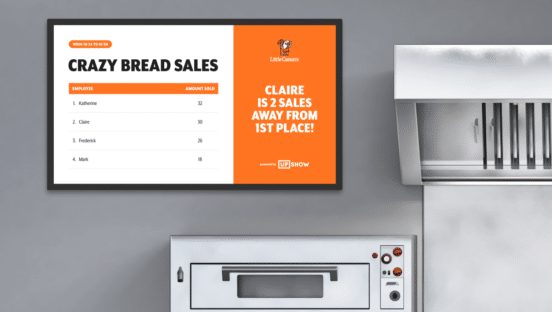Sponsored by Yext.
The industry is in the midst of a paradigm shift in the way that consumers find and engage with local businesses. There are more restaurant options than ever to choose from, and for a restaurant to succeed today, it’s essential to have a strong search presence—and to attract consumers in their micro-moments of intent. Online reviews are particularly influential when it comes to attracting diners to a restaurant, and away from the competition.
According to Lee Zucker, head of industry for food service and hospitality at Yext, there has been a massive growth in the quantity of reviews at the location level around the world. A recent study conducted by the company found that between 2015 and 2018, the U.S. saw a 617 percent increase in online reviews—and quick-service restaurants have seen greater growth than any other industry, with 96 percent of all restaurants in the segment having at least one online review through sites such as Yelp, Google, TripAdvisor, and Facebook.
“As customer reviews become increasingly prevalent in the restaurant industry,” Zucker says, “they are directly influencing and driving foot traffic to individual restaurants.”
It is critical for operators to implement a reputation management system, which includes a variety of factors—from excellent customer service at the outset to thoughtful, considered, and timely responses to reviews. Because consumers act on restaurants that have higher ratings and more reviews than their competitors, it is essential for quick-service operators to develop a strategy toward optimizing their reviews and encouraging customers to post about their positive experiences online.
According to Zucker, 87 percent of online reviews for three of the largest quick-service brands in the world (each with over 3,000 locations) came from Google.
Now that Google’s search algorithm includes review ratings and review quantities as ranking signals, businesses can see a direct correlation between increased star rating and click-through rates on customer actions such as “Order Online” or “Get Directions.” Fazoli’s, for example, saw a 43 percent increase in the share of local search results for keywords like “pasta” within six months of implementing a reviews management system.
“Customer reviews have a direct influence on transactions for restaurants,” Zucker says. “The time to get a solid reviews strategy in place is now.”
Here, we look at three things operators can start doing immediately to better manage their online presence:
1. Set the Goal
“Now that online reputation has actual proof points around driving conversion, it’s important to set the intention around what result your brand is looking to get from a reputation management strategy,” Zucker says.
Deciding on a goal—whether that is exclusively to drive more guests into your restaurants, or if it is to provide excellent customer care for every guest who leaves a review, or to better measure the ROI of your reputation management strategy—will help guide your next step.
2. Evaluate the Current State
According to Zucker, the average star rating for a quick-service restaurant is 3.49. When you launch a new brand management strategy and begin to set goals, it’s important to do so with the current benchmark in mind.
“Are you above average and okay with maintaining that rating, or do you want to improve?” he says. “Whenever someone searches ‘best’ anything, Google automatically filters out businesses with fewer than 4 stars, so if your rating is simply ‘average,’ there’s definitely room for improvement.”
3. Take Action
“Timing matters,” Zucker says. “72 percent of quick-service restaurants who are responding to online reviews respond in less than a week—and there’s a direct correlation between response rate, star rating increase, and conversion. The recommendation is to respond to 100 percent of reviews in less than a week. But that’s difficult. A technology platform is the best way to approach that at scale.”
Consumer facing engagement is vital to improving conversion and brand reputation, but a solid management strategy can provide operators with qualitative feedback as well. To find out how you can implement tools that will help your restaurant understand performance online, read more from Yext.
By Erin McPherson













